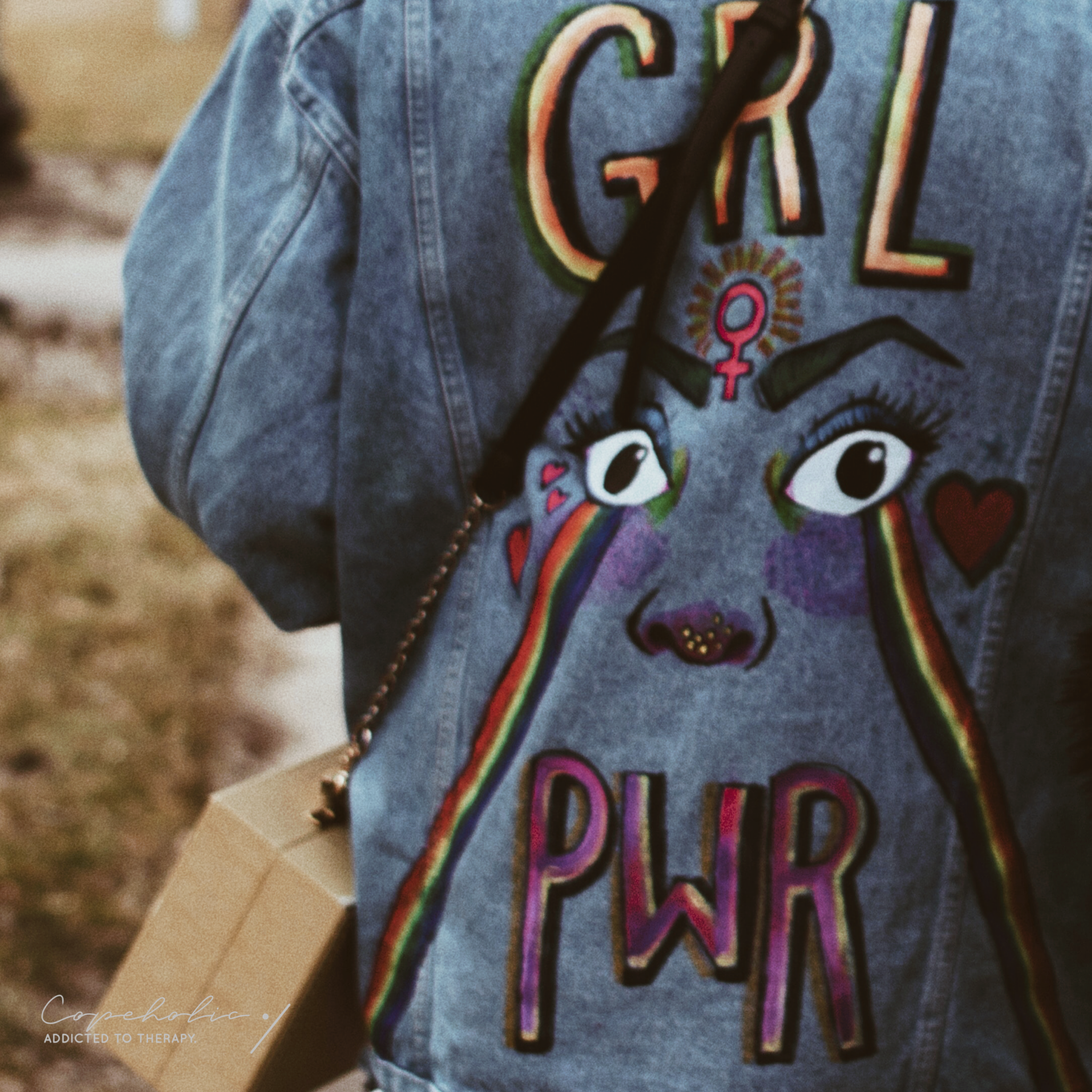Affirmations didn’t cure my nervous system, but they regulated my distress. Saying these affirmations outloud, looking at myself in the camera, and feeling connected to others gave me a sense of safety, hope, and purpose. Which my brain needed. My brain needed to know I was safe. My brain needed to know I could trust people. And my brain needed the actual content from the affirmations to begin rewiring the communication between my thoughts and my physical body.
Read MoreHopelessness. Depression. Grief. Mourning. Anxiety. Trepidation. These are the feelings that cloud my morning wake-state. The slippery space between sleeping and waking. A fog and heavy cloud of doubt and desperation that oozes my subconscious. And the not knowing if it is my real existence or just a dream.
Read MoreThis weekend I took a “social media detox,” something I gravely needed after the influx of people who’ve clicked the little “follow” button under the 150 characters that are meant to showcase the human behind the machine.
Recently, my Instagram community has grown to over 11k. And while I know that’s really not much in the scheme of things, it has overwhelmed me to my core.
Read MoreYears ago, I was asked to speak at a National Eating Disorder Awareness event about my story. It was the first time I publicly shared my story, and I was terrified. When writing my speech, I asked myself what I wish I could have heard as a young girl struggling with an eating disorder.
Read MoreThe 5 traits of resilient people, and how we can harness these factors to prevent global, collective trauma in the wake of the COVID-19 crisis.
Read MoreGrowing up, I wanted to be a good girl. To do so, I knew I would have to follow all the rules--if I did, then no one could punish me, and I would never have to face disappointment. I looked for rules everywhere--in my parent’s verbal and non-verbal cues, in their reactions to my behavior, and in their interactions with eachother. Through careful deciphering and child-like deliberation, I created an imaginary rubric of what I imagined the “rules” to be.
Read MoreSome people spend their lives focusing on mental wellness. They meditate, journal, go to therapy, read self-help books, practice active listening, understand how to identify and process their emotions, and have a breadth of coping skills. In the face of a crisis, they are as prepared as they can be to handle the toughest mental challenge of their lives.
Read MoreI have worked from home/worked on the road for the last 5 years, so I am no stranger to what it’s like to wake up in the same place I answer work e-mails. I am also very familiar with the intense boredom and lack of social contact that one suddenly faces when making the transition from office life to work-from-home life.
Read MoreIndividuals — whether trained in listening skills or not, have their own adapted skills as listeners. I have broken down my observations of these skills over my 31 years of life (no research guys, just observation and experience, so don’t freak out, it’s an idea not a scientific theory) into the “Four Listening Types.”
Read MoreThis is an incredibly difficult post for me to write, because it’s an incredibly difficult topic. I’d like to talk about suicide. I will be talking about suicidal ideation, emotional abuse, and trauma. The nature and content of this material might be disturbing or upsetting.
Read More








